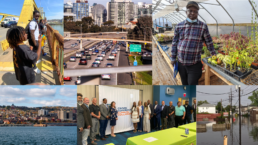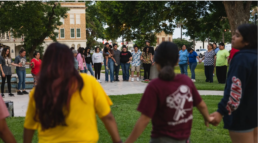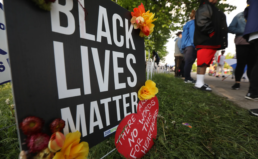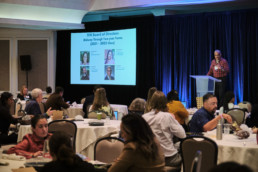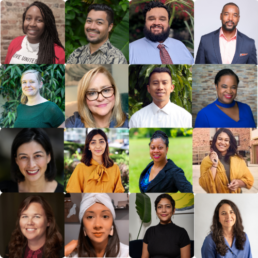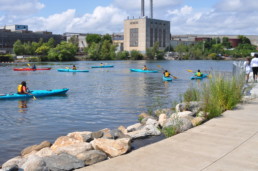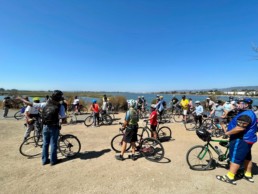Partners for Places: Eight U.S. Communities Receive nearly $1.3 million in Grants for Community-led Sustainability Projects
BY TFN STAFF
From helping neighbors install rain barrels in New Jersey to growing food at an urban agriculture site in Minnesota to planting native trees and community gardens on the Hawaiian island of Kaua‘i, the latest round of Partners for Places grants will help support efforts to create more equitable and resilient communities across the U.S.
In all, eight U.S. communities will receive nearly $1.3 million in Partners for Places matching grants to support sustainability efforts that focus largely on addressing the needs of historically marginalized communities that are disproportionately impacted by an escalating climate crisis and other environmental injustices.
By bringing together local governments, place-based funders and frontline community groups, these projects are also helping build relationships that will fuel even more action and collaboration at the grassroots level — fostering authentic engagement and input from populations and places that often bear the brunt of climate-fueled inequities but are often left out of decision-making processes.
The eight communities receiving this latest round of Partners for Places grants are: Baltimore County, Md.; Cook County, Ill.; Duluth, Minn.; Hackensack, N.J.; Kaua‘i County, Hawai‘i; Multnomah County, Ore.; Pittsburgh, Penn.; and San Diego County, Calif.
Meet the New Grantees!
So how will they use Partners for Places grants?
In San Diego County — where local leaders have proposed an ambitious plan to move the region toward zero-carbon emissions — the Partners for Places grant will be used to support targeted engagement of refugee, asylee and immigrant communities as part of the County’s larger regional engagement strategy, ensuring that implementation plans are equitable, prioritize community needs and offer solutions to climate change that are informed and shaped by those most impacted.
Illinois’ Cook County will use the Partners for Places funding to support a broader effort to bring together communities across racial and economic divides to share ideas, secure resources and drive large-scale projects to achieve equity and sustainability goals and reduce greenhouse gas emissions. The project also includes efforts to increase access to electric vehicle charging stations and increase the number of commercial properties, small businesses and households that embrace solar power and other green technologies.
Fostering authentic and inclusive community engagement, especially in areas that have been racially and economically marginalized, is a critical goal fueling many Partners for Places projects.
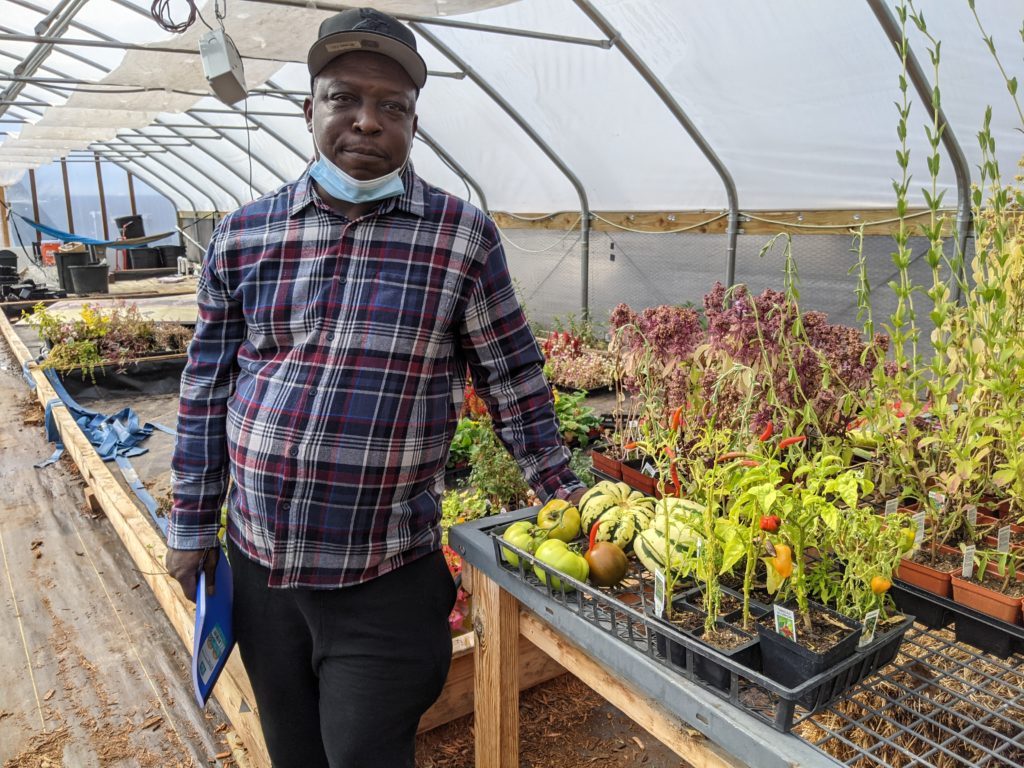
In Multnomah County, home to the City of Portland, this latest round of funding will build on an earlier Partners for Places grant, addressing the need for more coordinated collaboration between municipal leaders and residents to tackle the climate crisis, including developing a steering committee composed of representatives from local government and frontline communities to guide the planning process.
Partners for Places funding will help the community of Duluth build climate resilience and address health disparities in a low-income neighborhood. The project includes supporting “neighborhood champions” that can advance the city’s climate action plan and build greater neighborhood involvement in city-led policy and project discussions. The project also includes plans to use part of an urban agricultural site as a place for learning and social connection that will increase access to healthy foods. Another goal: helping residents identify and plan their own neighborhood-based projects.
Four of the communities selected for the latest round Partners for Places will receive dedicated funding specifically for green stormwater infrastructure projects.
In Baltimore County, where Black and other communities of color are disproportionately impacted by flooding and pollution, the grant will be used to develop and deliver public outreach and education to implement recently passed environmental enforcement legislation, ensuring water quality violations are corrected in a timely manner, government is responsive and equitable, and waterways are cleaner.
In Pittsburgh, project partners hope to build a foundation for community leadership as significant riverfront planning efforts get underway in the city’s West End. Their goals include engaging young leaders and other stakeholders to outline community needs and lead a holistic, coordinated planning process that will bring people together through activities such as on-the-water tours, community meetings and workshops.
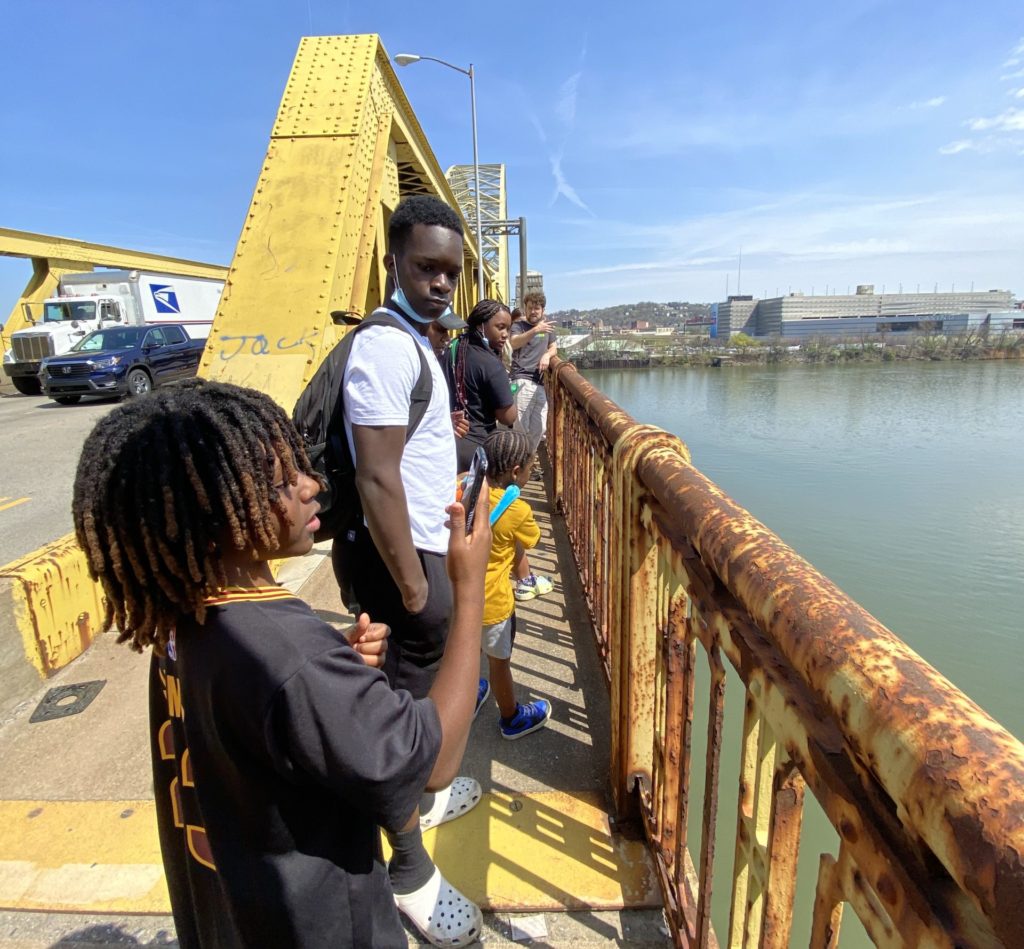
In Kaua‘i County, project partners will use the grant to support the installation of native trees and community gardens in Līhuʻe, the county seat, and create a partnership between county agencies, impacted community members and artists. The project includes community dinners to deepen connections and a collaborative process to identify additional green infrastructure projects. Local Kaua‘i artists will also create public murals near the proposed community gardens, designed to educate neighbors about local water issues and the benefits of green infrastructure, attract residents to use the connecting multimodal pathways, and beautify the downtown corridor.
In Hackensack, where extensive stormwater flooding coupled with a combined sewer system poses environmental and health risks particularly to Latinx, Black and other communities of color, the project seeks to build on flood-mitigation efforts by installing green infrastructure on public and private lands. The project also seeks to directly engage people from communities most impacted by flooding, involving them in green infrastructure planning and installation such as learning how to create rain gardens and install rain barrels that decrease stormwater run-off and help address flooding.
Partners for Places, led by The Funders Network (TFN) in partnership with the Urban Sustainability Directors Network (USDN), will provide $652,909 in funding to these eight communities through the grant program. With contributions from local matching funders, a total of $642,909 will be committed to fund sustainability projects in these selected communities. This grant cycle includes $345,000 — plus the local matching funds — awarded to the green stormwater infrastructure projects in Baltimore, Kuau’i, Hackensack and Pittsburgh. TFN and USDN have partnered with the Green Infrastructure Leadership Exchange, a practitioner network that supports communities seeking to grow green stormwater infrastructure programs, to support outreach efforts.
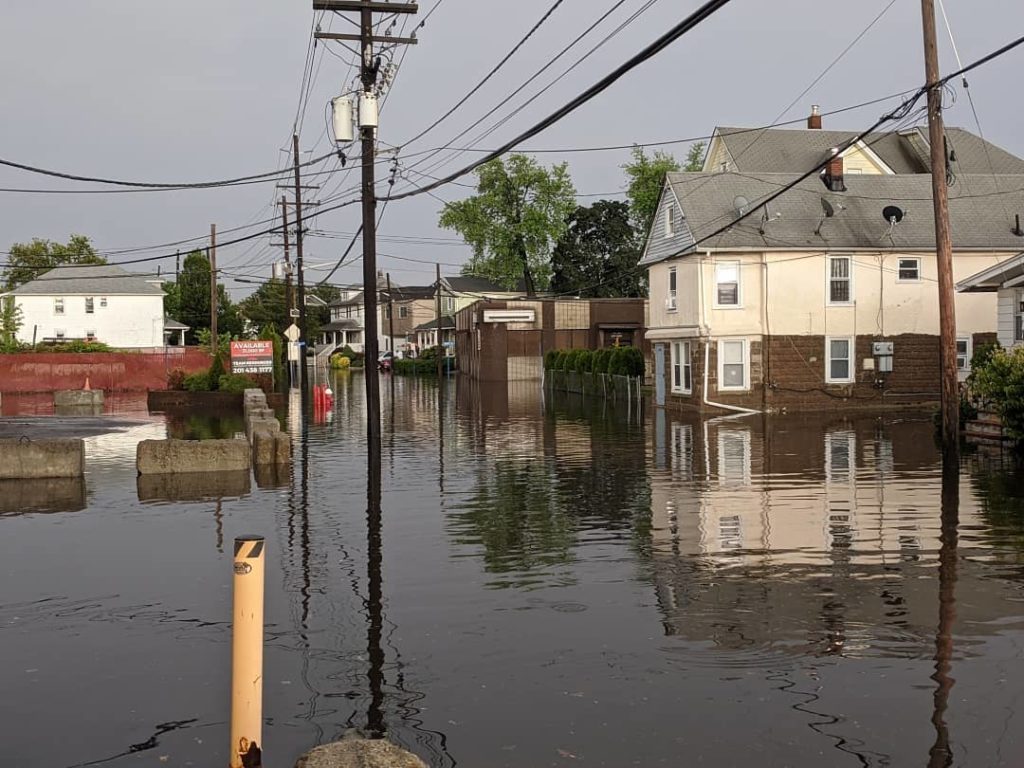
To date, Partners for Places has awarded more than $9 million across North America in this successful matching grant program, leading to more $19 million in investments.
The matching grant program brings national funder investors together with place-based funders to support equitable sustainable climate action and green stormwater infrastructure projects. The program is currently supported by The JPB Foundation, The Kendeda Fund, The Kresge Foundation, New York Community Trust, The Allen H. and Selma W. Berkman Charitable Trust, and the Pisces Foundation.
Partners for Places will open a new round of funding for the matching grants program in winter 2022. (Applications for Partners for Places Mini Grants will be available later this summer.)
Grants at a Glance
The latest Partners for Places grant recipients, project descriptions, matching funders and frontline community groups are:
- Baltimore County, Md. ($35,000): To build a movement of support for effective, equitable implementation of state-wide solutions addressing environmental response to climate change. Frontline community groups: Waterkeepers Chesapeake, Gunpowder Riverkeeper, and Blue Water Baltimore. Matching funder: Abell Foundation ($35,000).
- Cook County, Ill. ($97,909): To support building additional partners in Cross-Community Climate Collaboration (C4), implement structures for communication and collaboration within and across communities, and implement specific equitable climate projects. Frontline community group: Urban Efficiency Group. Matching funder: Oak Park River Forest Community Foundation ($97,909).
- Duluth, Minn. ($75,000): To build climate resilience and address health disparities in a low-income neighborhood through creative placemaking and collaborative partnership development. Frontline community group: Matching funder: Duluth Superior Area Community Foundation ($75,000).
- Hackensack, N.J. ($75,000): To enhance existing combined sewer separation plans with community-designed green infrastructure to mitigate stormwater flooding in low-income neighborhoods, addressing environmental justice issues. Frontline community group: Greater Bergen Community Action. Matching funder: Northern New Jersey Community Foundation ($75,000).
- Kaua‘i County, Hawai‘i ($85,000): To support the installation of native street trees and community gardens in Līhuʻe and create a plan/partnership framework for future green infrastructure. Frontline community groups: Better Block Hawaiʻi and Rice Street Business Association. Matching funder: Anonymous ($85,000).
- Multnomah County, Ore. ($50,000): To develop a frontline community-centered vision of climate justice that will serve as the foundation for a Multnomah County government and community climate justice plan. Frontline community group: Coalition of Communities of Color (CCC). Matching funder: Meyer Memorial Trust ($50,000).
- Pittsburgh, Penn. ($150,000): To build a foundation for community leadership as significant riverfront planning efforts get underway in Pittsburgh’s West End. Frontline community groups:O.P.E. for Tomorrow Inc., West End Community Group, and Riverlife. Matching funder: Heinz Endowments ($150,000).
- San Diego County, Calif. ($85,000): To develop an equitable, inclusive community engagement process that supports the engagement of impacted refugee, asylee and immigrant communities in the implementation of San Diego County’s Regional Decarbonization Framework. Frontline community group: Confirmation pending. Matching funder: The San Diego Foundation ($75,000).
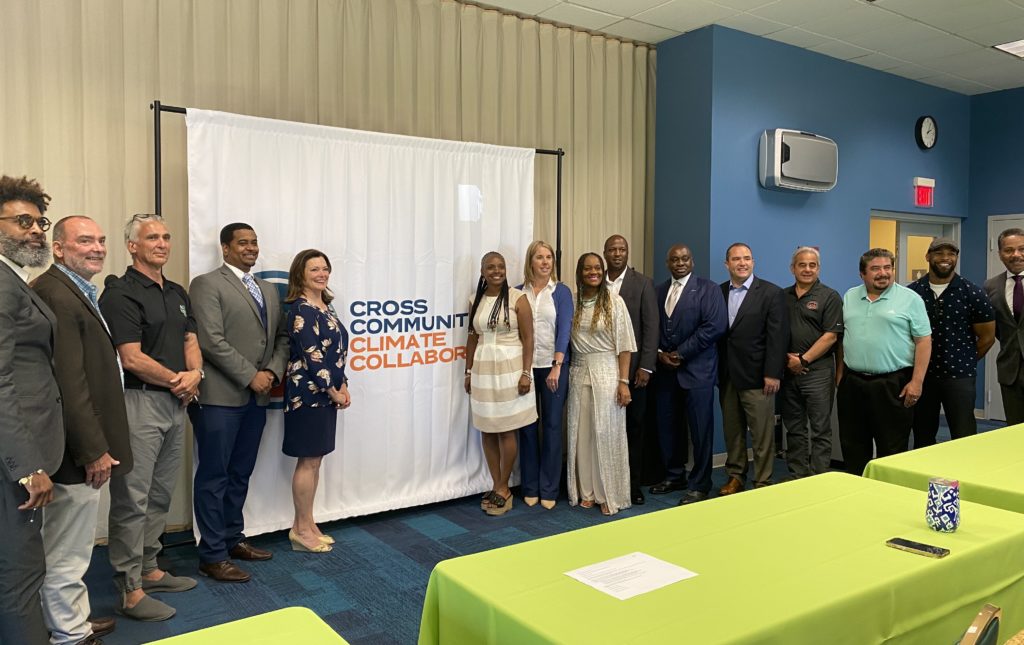
About Partners for Places
A joint project of The Funders Network and the Urban Sustainability Directors Network, Partners for Places is a successful matching grant program that improves U.S. and Canadian communities by building partnerships between local government sustainability leaders, place-based funders and frontline community groups. National funders invest in local projects developed through these partnerships to advance efforts to create communities that are sustainable, prosperous and just. Through these investments, Partners for Places fosters long-term relationships that make our communities more sustainable, prosperous and equitable. For more information on Partners for Places, visit fundersnetwork.org/partners-for-places/
About The Funders Network
The Funders Network (TFN) is a mission-driven network of grantmakers across North America that seeks to create impact at the intersection of environment, economy and equity. TFN works to inspire, strengthen and expand funding and philanthropic leadership that yields sustainable, prosperous and just regions and communities.
About The Urban Sustainability Directors Network
The Urban Sustainability Directors Network (USDN) a network of local government professionals across the United States and Canada dedicated to create equitable, resilient, and sustainable communities by advancing the field of local government sustainability and equipping practitioners to be catalysts of transformative change.
We Have so Much Work to Do: TFN's Pat Smith statement on Uvalde tragedy, plus advocacy resources for funders
BY PAT SMITH, TFN PRESIDENT & CEO
Last week in Uvalde, Texas, an 18-year-old armed with an AR-15 rifle and high-capacity magazines with hundreds of rounds of ammunition walked into a school and murdered 19 fourth graders and two teachers.
We’re still learning more about how the tragedy in Uvalde unfolded. But we know that solutions need to go deeper than hearts-and-prayer tweets or political posturing.
We must look past the headlines and social media noise and ask ourselves: What is philanthropy going to do about this?
• There are more guns than people in the United States. A 2018 report estimated that there are 393.3 million civilian-owned firearms in the United States, enough guns for every single adult and child to own one — and still have 60 million guns spare.
• So far this year, there have been 200 mass shootings in the U.S., an average of more than one a day. The violence in Uvalde came just 10 days after the racist rampage in Buffalo at a neighborhood grocery store and nine days after the shooting at the Irvine Taiwanese Presbyterian Church in southern California. Since last week’s shooting in Texas, there have been at least 11 other mass shootings in the U.S.
• The AR 15-style rifle, dubbed “modern sporting rifles” by the gun industry and which the shooters used in Uvalde and Buffalo to slaughter more than 30 people, is now the most popular rifle in the country.
• More than 311,000 students have experienced gun violence at school since Columbine. In 2020, firearms became the leading cause of death among children and teens nationally. Tragically, there are children dying every day in rural, suburban and urban communities from incidents of gun violence that rarely make the national news.
• And communities of color are disproportionally impacted by gun violence. A 2020 report from the John Hopkins Center for Gun Violence Solutions noted that Blacks are more than 12 times more likely to be victims of gun homicides than white people. Native Americans/Alaska Natives are nearly four times as likely than their white counterparts. People of Hispanic or Latin American descent are twice as likely to die than non-Hispanic/Latino whites.
Let all this sink in for just a moment.
In the coming weeks, our nation’s gun laws will be debated once again. It’s my deep hope that we support those working to enact policy changes at the local, state and federal level. We as a sector are sometimes misinformed and a bit skittish about funding campaigns calling for legislative action.
Foundations have the power to help support research and advocacy campaigns that lobby for gun safety legislation, including banning semi-automatic rifles like the AR-15 and high-capacity magazines, weapons of choice for mass murders. Congress found the will to do so for ten years, and “the body of research now increasingly suggests the 1994 law was effective in reducing mass-shooting deaths.”
Our Bolder Advocacy colleagues note that “foundation support for nonprofits that engage in advocacy, including lobbying and election-related activities, isn’t just legal — it’s important, powerful, and fundamental to democracy.”
In 2021, the gun industry set new lobbying spending record, spending $15.8 million on lobbying compared to $2.9 million in lobbying from gun control groups. That is more than five times as much. In the first quarter of 2022, these groups have already spent $2 million and gun control groups just $609,000.
Fund for a Safer Future, an effort supported by TFN members the Kendeda Fund and Annie E. Casey Foundation, among others, pools resources to invest in targeted, practical, strategies to reduce gun injuries and deaths.
The organization will host funders-only briefing on Thursday, June 2 at 2 p.m. ET. The briefing is open to all members of the philanthropic community who are interested in learning more about solutions to the growing public health crisis of gun violence and its devastating impacts on American life.
For more information about efforts to stem the tide of guns in America, here are policy agendas and other resources from Everytown for Gun Safety, which works with local, federal, and state governments to enact and implement policies that reduce gun violence; Moms Demand Action, which came about in the aftermath of the shooting at Sandy Hook Elementary in 2012 and is part of Everytown for Gun Safety; and March For Our Lives, created by young survivors of the 2018 school shooting in Parkland, Fla.
TFN’s staff team, all of us women, includes many mothers of young children. They are having yet another series of difficult conversations with their kids about what to do if a “bad guy” comes into their school. When checking in with these TFN moms last week, I was so dismayed to realize how routine mass shooter drills are for this generation of little kids, some barely toddlers, who are coming of age in the 10 years since Sandy Hook.
Our children deserve better from this world. Better from us.
We have so much work to do.
How to Help
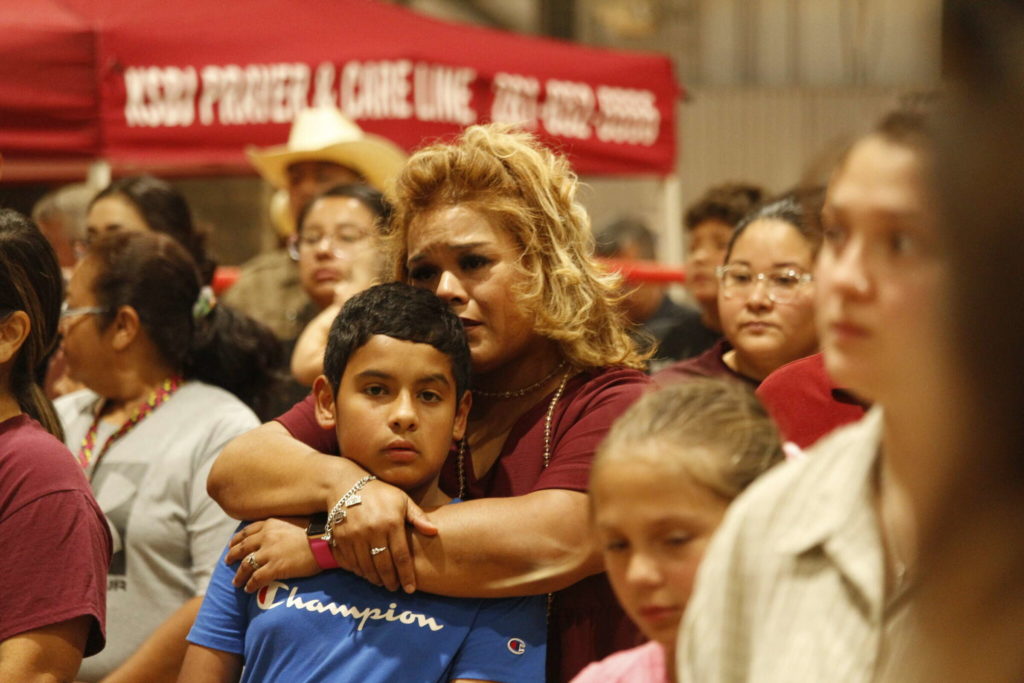
Uvalde Strong Survivors Fund will provide direct financial assistance to the survivors of the deceased and those directly affected by this tragedy. One hundred percent of the contributions donated to this fund will go directly to victims and survivors of this atrocity in partnership with National Compassion Fund. Donate here.
Uvalde Strong Fund is an emergency relief fund to support area nonprofits that will provide long-term assistance, including mental health services, in the Uvalde community. Donate here.
Additional Resources:
Lessons from Atlanta & Milwaukee | Improving Community Safety Through Public Health Strategies, The Annie E. Casey Foundation
Featured image at top: Jordan Vonderhaar/ Getty Images
'The Pain is in our DNA': TFN's statement on the Buffalo shooting - and how funders can help
BY PAT SMITH, TFN PRESIDENT & CEO
Margus Morrison was picking up snacks for a weekly movie date night with his wife.
Celestine Chaney had stopped in with her sister to buy strawberries for a shortcake recipe.
Andre Mackneill was there to get a surprise birthday cake for his young son.
And in a matter of seconds, they — and seven others — were gone. Ten lives cut short by a racist gunman who targeted their neighborhood grocery store in order to carry out an act of inexplicable violence.
Inexplicable. But not unfamiliar.
This Saturday, the Masten Park neighborhood of East Buffalo became the latest community terrorized by a radicalized white supremacist, a list that includes Charleston, El Paso and Christchurch.
I can’t look at the faces of those killed without seeing someone who looks like my brother, my grandmother, my nieces. Without seeing someone who looks like me.
It’s almost too much to process.
So as this sad and heavy week comes to an end, let’s start with the easiest part: How you can help the Buffalo community and survivors of this racist act of violence.
The Community Foundation for Greater Buffalo, a member of The Funders Network, has created The Buffalo Together Community Response Fund, in partnership with the United Way of Buffalo & Erie County and other philanthropic partners, to help address immediate community needs, long-term rebuilding and systemic issues in the aftermath of the the shooting.
Additionally, the Tops grocery chain and the National Compassion Fund has established the Buffalo 5/14 Survivors Fund to provide direct financial assistance to the survivors of the deceased and those directly affected by this tragedy. (You can find additional information on both of these efforts on the Buffalo Together webpage.)
Although this was the action of a lone gunman, this violence was not born in a vacuum. America’s history is steeped in racialized violence. And at just 18 years this gunman was already sufficiently immersed in the anti-Semitic, anti-immigrant and anti-Black language of replacement theory, which posits that malign forces are bent on replacing white people and stripping them of their innate power and privileges.
Once relegated to the dark fringes of the internet, this conspiracy theory has gone disturbingly mainstream with echoes of this madness coming from cable TV hosts and elected leaders.
As leaders in the philanthropic sector, I implore you to continue to invest in historically disempowered communities impacted by racism and support frontline, grassroot organizations through unrestricted funds and capacity-building resources.
Because racial violence can be inflicted not just by a lone gunman, but by systemic, racist policies and practices as well.
A recent New York Times story points out that Buffalo “is split into two vastly different worlds, the East and West Sides. About 85 percent of Black Buffalo residents live in East Buffalo, and researchers have mapped the effects of the split on nearly every aspect of life, including education, job opportunities, housing and even life expectancy, according to a 2018 report from the Partnership for the Public Good.”
Black people in Buffalo live an average of five fewer years than white residents. (The national gap between white and Black life spans is an average of 3.6 years.)
“The pain is in our DNA at this point,” 64-year-old Earlene Patterson told the Times. “It’s in my great-grandfather, my father. It’s in me.”
This is the very community this gunman was drawn to, driving three hours to inflict even more racial trauma on the Black people of East Buffalo.
Investigators and pundits will surely pore over the motives of this terrorist, whose name I will not type much less utter out loud.
Instead, I’ll share this image created by artist Jen White-Johnson and posted on social media by our friends at The California Endowment, with the all-too-frequent reminder that comes after an act of racial violence: Say Their Names.
When you have a quiet moment, please reflect on these 10 souls whose lives deserve to be remembered as more than just a tragic data point.
Roberta A. Drury, 32
Margus D. Morrison, 52
Andre Mackneil, 53
Aaron Salter, 55
Geraldine Talley, 62
Celestine Chaney, 65
Heyward Patterson, 67
Katherine Massey, 72
Pearl Young, 77
Ruth Whitfield, 86
Say their names. Tell their stories. And may their memories fuel not only tears and fury, but action. Because it’s only through action that we’ll find any meaningful hope for change.
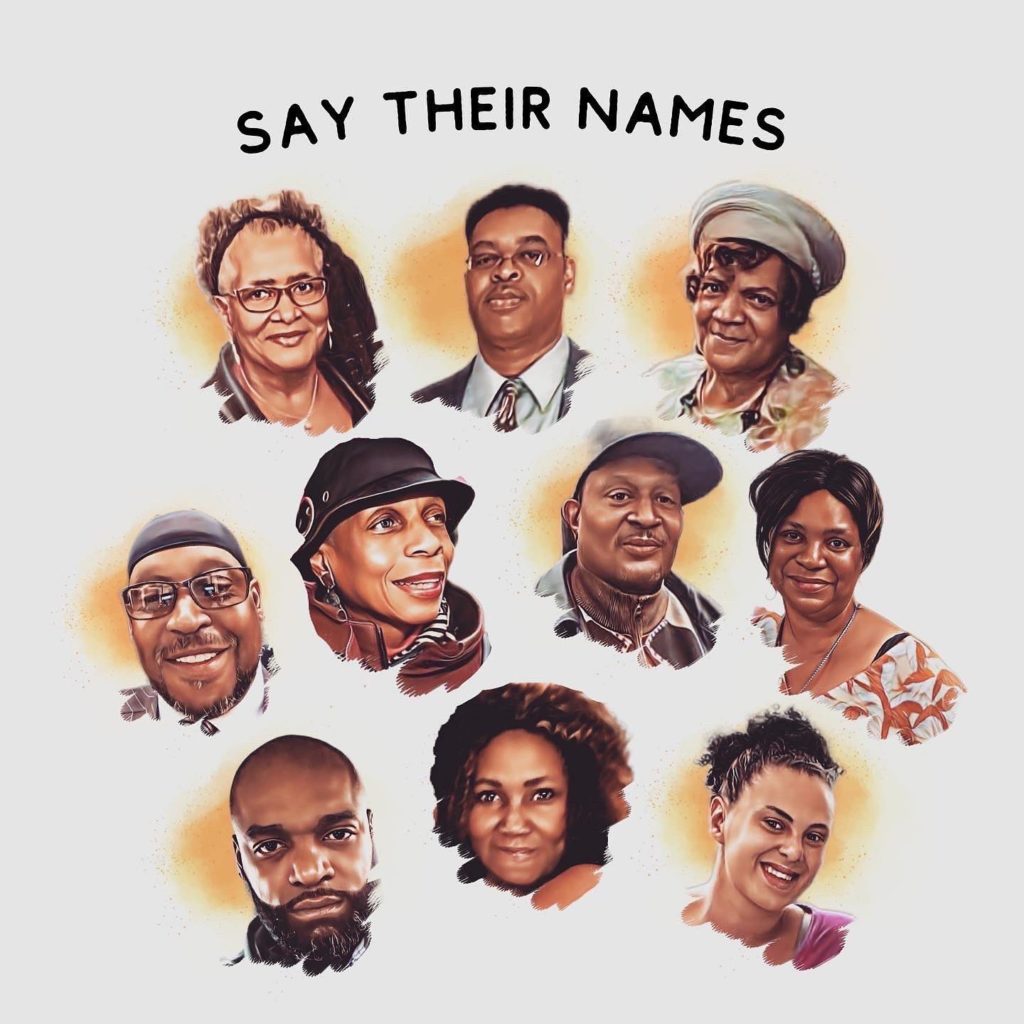
Image credits: (Top photo) Tina MacIntyre-Yee/ Rochester Democrat and Chronicle; (Illustration) Jen White-Johnson/ @jtknoxroxs
Welcome & Congrats: TFN Board of Directors' New Members & Officers
BY Patricia L. Smith, TFN President & CEO
I'm excited to share the election of our 2022-2024 slate of TFN’s Board of Directors, which includes four new additions to our phenomenal board.
This year's election was conducted via electronic ballot, with the results shared at TFN's Annual Meeting during our recent Annual Conference: Seize the Moment in San Diego.
At our meeting, we also celebrated the election of our new TFN board officers and bid a fond farewell to those board members who concluded their service in March.
I want to offer my deepest gratitude to these board members for their service over the years: Neelima Shah of the Bullitt Foundation (and most recent TFN board treasurer), Eric Muschler, of the Greater Minnesota Housing Fund; and Kellie Terry of the Surdna Foundation.
While he remains on TFN's board, I also want to share my heartfelt thanks to Craig Martinez of The California Endowment, who concluded his two-year term as board chairperson in March — a tour of duty that coincided with the the most severe period of the coronavirus pandemic.
As chair, Craig — along with the rest of the board — helped guide TFN through this challenging period as our team navigated the impacts of the pandemic and how best to be of service to the broader TFN community.
I'm excited to share that Don Hickman of the Initiative Foundation has been elected as the new chairperson of TFN's Board of Directors. Don has been an invaluable member of TFN's funder community for many years, and currently sits on the PPREP Steering Committee. (You can learn more about Don and the Initiative Foundation in this TFN Know Your Network blog post.)
I'm also thrilled to note that our board now includes six TFN PLACES alums, the most we've ever had! We are so proud of the cadre of philanthropic leaders that make up the PLACES Alumni Network, and are grateful for their continued support of TFN's mission. (You can read about the newly announced 2022 PLACES Cohort here.)
Join me in congratulating these new and returning board members, as well as our newly elected board officers.
During our virtual election, which concluded March 7, TFN members elected the Board of Directors class of 2022 – 2024. Please note that the first four candidates are being elected to a first term of office. The remainder are current directors who are renewing a term of office.
TFN Board of Directors Class of 2022 – 2024
Chan Brown
Program Officer
Kansas Health Foundation and TFN PLACES Alum
(First term, 2022 – 2024)

Janel M. Hines
Vice President, Community Impact
Greater Milwaukee Foundation and TFN PLACES Alum
(First term, 2022 – 2024)

Kaying Hang
Senior Vice President of Programs and Partnerships
Sierra Health Foundation
(First term, 2022 – 2024)

Surabhi Pandit
Director, Human Services Initiatives
Community Foundation for Southeast Michigan and TFN PLACES Alum
(First term, 2022 – 2024)

Michael Coffey
Director, Racial Justice Fund
Greater Cincinnati Foundation and TFN PLACES Alum
(Second term, 2022 – 2024)

Karla Twedt-Ball
Senior Vice President, Programs and Community Investment
Greater Cedar Rapids Community Foundation
(Second term, 2022 – 2024)

Jessica Boehland
Senior Program Officer, Environment
The Kresge Foundation
(Third term, 2022 – 2024)

Don Hickman
Vice President for Community and Workforce Development
Initiative Foundation
(Third term, 2022 – 2024)

Elizabeth Love
Chief Executive Officer
Jacob and Terese Hershey Foundation
(Third term, 2022 – 2024)

Shawn Escoffery
Executive Director
Roy and Patricia Disney Family Foundation
(Fourth term, 2022 – 2024)
Additional Board Members
In addition to the directors just elected to a new term, there are four directors who are in the middle of serving a two-year term as part of the 2021 - 2023 class.

Emily Hall Tremaine Foundation



Election of Officers
TFN is pleased to announce that at its January 2022 meeting, the TFN Board of Directors elected the following individuals to serve as its officers. Officers are elected for a one-year term, except the chairperson, which has a two-year term.

Chairperson
(2022-2024)
Don Hickman
Vice President for Community and Workforce Development
Initiative Foundation

Vice Chairperson
(2022-2023)
Sheena Solomon
Executive Director
The Gifford Foundation
and TFN PLACES Alum

Treasurer
(2022-2023)
Michael Coffey
Director, Racial Justice Fund
Greater Cincinnati Foundation
and TFN PLACES Alum

Secretary
(2022-2023)
Elizabeth Love
Chief Executive Officer
Jacob and Terese Hershey Foundation
Open Letter: Climate Funders Need to Re-think their Giving and Invest More in Clean Transportation to Curb Greenhouse Gases
More than 35 leading climate justice, environmental, civil rights and philanthropic leaders are calling on climate funders to re-think their giving and for far greater philanthropic investment in ending greenhouse gas emissions from transportation. The open letter to funders comes after the passage of the bipartisan infrastructure bill which commits nearly $90 billion in guaranteed funding for public transit over the next five years — the largest federal investment in public transit in history.
In addition to Pat Smith, president and CEO of The Funders Network, the large and diverse coalition releasing the open letter includes signatories from the NAACP, Urban Institute, 350.org, TransitCenter, Sierra Club, Summit Foundation, NRDC (Natural Resources Defense Council), Bullitt Foundation, Labor Network for Sustainability, Alliance for a Just Society, Merck Family Fund, U.S.PIRG, National Committee for Responsive Philanthropy, TFN’s Smart Growth California and Mobility and Access Collaborative initiatives, and many others.
The letter is being delivered to climate foundations with the expectation that they will increase funding to advocates to push for the greenhouse gas reductions necessary to address the nation’s transportation system impacts on climate, equity, and health.
If you or your organization would like to sign on to this letter, click here.
Please reach out to either Martha Roskowski, program lead for the Mobility and Access Collaborative, Darryl Young of the Summit Foundation, or David Bragdon of TransitCenter if you have any questions about this effort.
Read the full letter below.
Open Letter: Investing in Multimodal Transportation
Dear Philanthropic Community,
We share your commitment to tackling the climate crisis and promoting racial justice. We believe that multimodal transportation is key to advancing these crucial goals. Yet, despite the fact that transportation accounts for the greatest share of greenhouse gas emissions in the U.S., transportation is vastly underfunded in climate philanthropy (accounting for less than 10 percent of climate funding) and the frontline organizations fighting for a just, multimodal future are campaigning on shoestring budgets.
We urge leaders in climate funding to invest in community-based groups who fight for better transportation. We further urge leaders in funding of electric vehicles to make supplementary investments in civic advocacy for public transit and other alternative climate-friendly modes of transportation. We urge leaders to boost the sum total of transportation investments. Specifically, we believe an additional investment of $200 million in transportation organizing is needed to transform the way Americans move, replacing our dependence on highways and roads with an approach to transportation and land use that includes transit, electric trucks and cars, biking, walking, and more.
Public transit is often overlooked as a means for tackling climate change and promoting racial equity. This is a grave mistake. Buses and trains provide mobility across race and class, to people in rural and urban communities alike, and to seniors and people with disabilities. Paired with biking and walking, transit reduces sprawl, improves health, and lowers transportation expenses.
Meanwhile, highway construction and widening continue at a breakneck pace, despite the extreme environmental costs and the catastrophe that highways have long represented for communities of color. Perversely, highway widening has been promoted as a means of reducing congestion and carbon emissions though it does the opposite and even though highway projects continue to harm communities of color. The $135 billion allocated for 58 major highway expansion projects since 2014 could have funded more than 250,000 electric buses.
Every five years Congress reconsiders transportation priorities. We must do two things between now and the next reauthorization: we must not only shape a better context for the 2026 legislation, but we must also influence the implementation of the Infrastructure Investment and Jobs Act (IIJA) to ensure that we make progress on climate and equity rather than move backward. Successfully influencing implementation of the IIJA, in turn, will help us build power and momentum towards a better reauthorization in 2026. This requires effective grassroots pressure, and creating that pressure requires robust collaboration from philanthropy.
Philanthropy can help unlock the latent power of riders by supporting the frontline organizations that are building a social justice movement for multimodal transportation and transit-oriented development. We’ve already seen the difference this untapped constituency can make. The examples below show effective community-based advocacy is essential to winning less carbon-intensive infrastructure investments:
➡ In the Seattle region, a broad network of groups organized by the Transportation Choices Coalition led to creation and passage of a ballot measure that raised $54 billion in new revenues for a vast expansion of the light rail and bus systems.
➡ In Houston, the Texas Department of Transportations threatens to destroy over a thousand homes and businesses in low-income neighborhoods of color. With its partners, the civic group LINK Houston, funded by philanthropy, organized the opposition and currently has prevailed on the U.S. DOT to temporarily pause the project due to its likely civil rights violations.
➡ In New York City, a diversity of groups originally convened under the initiative of Mayor Michael Bloomberg pressed the legislature for years to adopt decongestion pricing, which will reduce emissions and generate $1 billion per year for transit improvements. Local foundations funded the Riders Alliance and others to accomplish this victory.
➡ In Los Angeles, bus riders are predominantly low-income people of color, and many are “essential workers,” yet at the height of COVID LA Metro proposed disproportionate cuts interfering with their ability to get to work. Civic groups including ACT LA, Investing in Place, and Move LA, pressured the LA Metro board to restore service that was fairer and more responsive to need.
Organizations like these took a tremendous leap amid the pandemic, campaigning in coordination for the first time to win historic federal investment in transit. Specifically, the American Rescue Plan and Build Back Better Act deliver federal operating assistance for transit for the first time, and the IIJA includes an unprecedented $107 billion in transit funding. Yet, the groups fell short of stopping the IIJA’s increased highway funding, and failed to achieve the transformational goals of ending the 80/20 spending split and securing significant new investments to allow more people to move out of cars.
Undeterred, these groups are now focusing on local, regional and statewide agencies, advocating for federal dollars to be used to improve transit service, stop highway expansions, and build better places to walk and bike, particularly in frontline communities. In the process, these organizations are honing the advocacy muscle necessary to fundamentally restructure our transportation priorities. These efforts should command the full backing of philanthropy. Instead, organizers and grassroots leaders are winning what they can with extremely limited resources.
A $200 million philanthropic investment over the next five years would empower local groups to build a robust, coordinated field to win local battles, direct the coming surge of federal funding and prepare for reauthorization. With this funding, frontline organizations will reduce greenhouse gases in their communities and be ready to win a transformational reauthorization fight in 2026.
Funding local and regional organizing for multimodal transportation is crucial to achieve our shared goals of climate justice and racial equity. We look forward to collaborating with you to build a more sustainable and equitable future.
Sincerely,
David Bragdon, Executive Director, TransitCenter
Michael Leon Guerrero, Executive Director, Labor Network for Sustainability
LeeAnn Hall, Executive Director, Alliance for a Just Society
Martha Roskowski, Coordinator, Mobility and Access Collaborative
Darryl Young, Sustainable Cities Program Director, Summit Foundation
(initial signers)
Jenny Russell, Executive Director, Merck Family Fund
Elizabeth Love, CEO, Jacob and Terese Hershey Foundation
Johanna Bozuwa, Executive Director, Climate and Community Project
Beth Osborne, Director, Transportation for America
Charles Brown, President and CEO, Equitable Cities LLC
Derrick Johnson, President and CEO, NAACP
May Boeve, Executive Director, 350.org
Mike Pratt, President & Executive Director, Scherman Foundation
Varshini Prakash, Executive Director, Sunrise Movement
Ron Milam, Director, Smart Growth California
Pat Smith, President and CEO, The Funders Network
Dan Chu, Acting Executive Director, Sierra Club
Lisa Jacobson, Senior Program Officer, Mobility, Barr Foundation
Corinne Kisner, Executive Director, NACTO (National Assoc. of City Transportation Officials)
Matt Casale, Environment Campaigns Director, PIRG (Public Interest Research Groups)
Bill Nesper, Executive Director, League of American Bicyclists
Kevin Mills, Vice President of Policy, Rails-to-Trails Conservancy
Amy Hennessey, Senior VP, Communications & External Affairs, Ulupono Initiative
Robert Dean, CEO, Center for Neighborhood Technology
Fletcher Harper, Executive Director, GreenFaith
Judith LeBlanc, Executive Director, Native Organizers Alliance
Jerry Maldonado, Vice President of Programs, PolicyLink
David Biemesderfer, President & CEO, United Philanthropy Forum
Ben Crowther, Highways to Boulevards Director, Congress for the New Urbanism
Michael Kodransky, US Director, Institute for Transportation and Development Policy (ITDP)
Joel Espino, Transportation Equity Lead, Wend Collective
Aaron Dorfman, President & CEO, National Committee for Responsive Philanthropy
Manish Bapna, President & CEO, Natural Resources Defense Council
Denis Hayes, CEO, Bullitt Foundation
Rushad Nanavatty, Managing Director, Urban Transformation, RMI
Shelby Scales, Director, OSDBU, USDOT*
Diane Ives, Consultant*
Tamika Butler, Tamika L Butler Consulting LLC*
Yonah Freemark, Urban Institute*
Jacqueline Patterson, Founder and Executive Director, The Chisholm Legacy Project: A Resource Hub for Black Frontline Climate Justice Leadership*
Basav Sen, Climate Policy Director, Institute for Policy Studies*
Greg LeRoy, Executive Director, Good Jobs First
Bryn Lindblad, Deputy Director, Climate Resolve
Benjamin de la Peña, CEO, Shared-Use Mobility Center
Robert Puentes, President/CEO, Eno Center for Transportation
*Organization for identification
The above list reflects the signatories as of April 13. To view an updated list, or add your name as a signatory, click here.
Photo by luigi alvarez is licensed under CC0
Building Power for Community-Led Solutions: GREEN And Urban Water Funders Learning Together
BY Kerry Hastings and Ann Fowler Wallace, TFN Urban Water Funders and GREEN working groups
On February 16 and 17, funders from TFN’s GREEN and Urban Water Funders working groups came together to deepen learning and connections. This virtual gathering was the second annual convening where these two working groups met together, recognizing how interconnected their interests are. Both groups focus on disparate climate impacts on low-income communities and communities of color, the importance of community-led solutions, and the need for increased and targeted investments into those same communities to transform them into hubs of sustainability, health, equity and innovation.
Nearly every funder arrived with a hunger to root ourselves in this moment of extreme disparity and growing climate-fueled disasters, as well as one of unprecedented investment coming down from the federal government into states and communities. We used our two days to learn from frontline community leaders, government officials, and one another. Our sessions provided opportunities to hear from members of the White House’s Environmental Justice Advisory Council (WHEJAC), Hawaiians leading climate resilience and OneWater work in Honolulu, and funders growing their racial equity muscles as they center equity in their institutions and implement equitable grantmaking practices. We also held several opportunities for breakouts for deeper funder connection and learning.
Our two days together left funders feeling inspired and motivated both by the ideas and solutions proposed, as well as the work ahead to implement those solutions. Below are a few of the themes on how philanthropy can step into its role with the greatest impact, and ways that funders want to dive deeper in learning and implementation of these solutions.
- Supporting workforce development and inclusive leadership pathways. Philanthropy can support the next generation of water leaders by investing in leadership development and workforce pathways. There was particular interest in learning beyond the water and climate sectors and tapping into expertise of jobs programs such as Americorps or Public Allies to support a more diverse workforce.
- Get frontline organizations what they need most. The verdict is clear: nonprofit organizations (NGOs), especially those on the front lines, need unrestricted, multi-year grants to do their most impactful work. In addition, frontline leaders called on philanthropy to support endowments for environmental justice groups to lessen the ever-present burden of fundraising, as well as support self-care, career pathways and wage growth within NGOs so that great staff don’t have to leave movement work to advance in their careers.
- Utilize intermediaries as a tool for targeted investments. For those funders who cannot build direct relationships with every community where they would like to move funds, intermediaries – when used thoughtfully – can be a way to drive investment to and build capacity of smaller organizations and ecosystems of organizations that serve places or specific communities, such as Native American intermediaries. Intermediaries can also serve as a path to get federal and state resources directed towards community-led solutions.
- Support government agencies directly. A powerful image of an hourglass was shared by a WHEJAC member during our opening session; at the top of the hourglass is the pledge and commitment of the federal government to do something big on equity, and at the bottom are the billions of dollars ready to go out the door. In the middle, however, is the bottleneck of limited staff capacity to make the commitment a reality. How can philanthropy help expand this pinch point? Foundations can loan executives or support additional staff from talented NGOs, and through advocacy and funding of community groups, support de-siloing of government agencies to encourage collaboration at the local, state and national level.
- Commit to and invest in racial and economic equity. Funders continue to hunger for more peer learning on how to deepen their equitable grantmaking practices and internal operations. Funders discussed how to make the case to trustees, how to support ongoing evaluation to ensure new practices are meeting their intended goals, and ways to use various tools to identify spots for improvement, such as the Meyer Memorial Trust’s DEI Spectrum Tool.
- Protect democracy. It is not an exaggeration to say that this moment is different than any other in our lifetimes, as we watch a renewed attack on democracy in our nation and around the globe. While funders each have their specific program and issue areas, the larger context of protecting our democracy must be considered and invested in, including a focus on the judiciary and the dangers that lie ahead for progressive causes and Black, Indigenous and other People of Color communities.
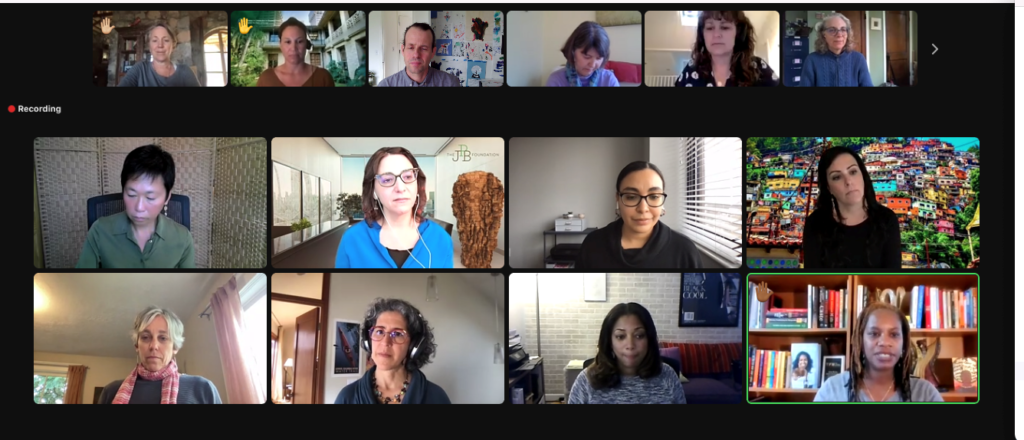
We can’t wait to continue these discussions and others. Many thanks to our planning committee: Alejandra Hernandez, Kresge Foundation; Naeema Campbell, Geraldine R. Dodge Foundation; Nate Boon, William Penn Foundation; Dana Okano, Hawaii Community Foundation; and John Mitterholzer, George Gund Foundation.
Learn more
To learn more about our two working groups and sign up for our newsletters, visit the Urban Water Funders and GREEN working groups pages.
About the Authors
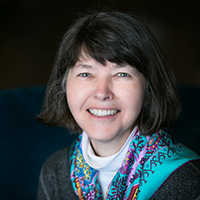
Ann Fowler Wallace is TFN’s director of programs. Ann manages TFN’s working groups and regional networks, is part of the GREEN working group team, and serves on the Governance Committee and Grant Selection Committee for the Partners for Places grant program.
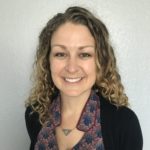 Kerry Hastings is the program lead for TFN’s Urban Water Funders working group, as well as the program manager for Smart Growth California, a TFN initiative.
Kerry Hastings is the program lead for TFN’s Urban Water Funders working group, as well as the program manager for Smart Growth California, a TFN initiative.
“Hawaii Big Island” by szeke is licensed under CC BY-SA
Meet the 2022 PLACES Fellows!
BY Dion Cartwright, TFN Director of Equitable Initiatives and
Leadership Development
TFN’s vision is to create generations of courageous philanthropic leaders who are engaged, emboldened and equipped to bring about a just society.
That’s why we are so proud to announce the 2022 PLACES Fellows — 16 exemplary grantmakers who will embark on a year-long curriculum focusing on racial equity and justice.
They will work together to not only deepen their understanding of structural racism and its malign impacts, but to acquire the tools and resources needed to challenge and change systemic inequities through their grantmaking.
Because of the disruptions caused by the coronavirus pandemic, we had to hit pause on our PLACES Fellowship program last year.
Before we celebrate the 2022 PLACES Cohort, I want to acknowledge our 2020 PLACES Fellows, who accepted their fellowships just a few weeks before COVID hit the headlines, causing us to quickly pivot our learning agenda into an all-virtual format. These 2020 PLACES Fellows adapted with grace and goodwill – and bore witness in real-time to the disproportionate health, economic and social impacts this pandemic wrought on Black, Indigenous and other communities of color.
In fact, throughout this ongoing pandemic, I’ve drawn tremendous inspiration and motivation from our PLACES Alumni Network, who have stepped up to offer each other support, resources and compassion over these past two years.
Over the years, PLACES cohorts have addressed issues impacting disenfranchised communities, including structural racism, gender justice, health equity, environmental sustainability, economic development and community engagement — asking difficult questions, exploring uncomfortable truths and confronting their own biases along the way.
As our society continues to wrestle with a long-overdue reckoning on racial justice, it’s essential that our philanthropic institutions work to remedy systemic inequities, including those within their organizational cultures.
I look forward to learning and sharing alongside these 16 new PLACES Fellows as we embark on this year-long journey. They represent a wealth of expertise and lived experiences, and hail from diverse geographies and backgrounds.
On behalf of the selection committee (comprised entirely of PLACES alums) and TFN’s PLACES team, including Equity Programs Manager Talissa Lahaliyed and the PLACES Advisory Board, join me in congratulating these outstanding 2022 PLACES Fellows!
Meet the 2022 PLACES Fellows!
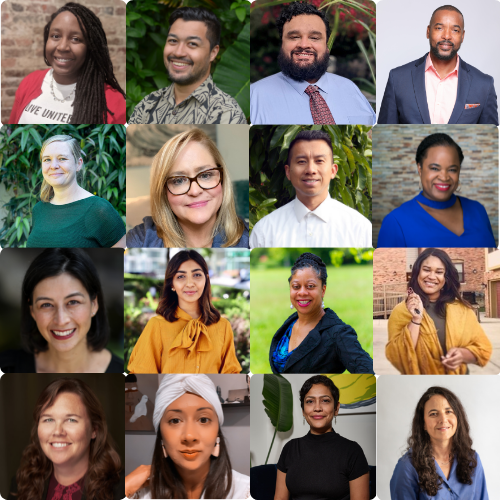

XAN AVENDAÑO
Harry and Jeanette Weinberg Foundation

FRANCISCO COVARRUBIAS
California Community Foundation

MICHELE CHRISTIANSEN
Voqal

KATRINA DEBERRY
Community Foundation for Greater Atlanta

SIDRA FATIMA
The Kresge Foundation

FELISA GONZALES
The Colorado Trust

JESSICA MÁKÀŃJÚ GONZÁLEZ MARTÍNEZ
New Growth Innovation Network

TIA HICKS
Local Initiatives Support Corporation (LISC) Bay Area

MELANIE MOORE
Charles Stewart Mott Foundation

JENNIFER PEREIRA
Rhode Island Foundation
<

LAKSHMI (SASHA) PONAPPA
CSD Unites Community Foundation

SALLY RAY
Center for Disaster Philanthropy

NELL TESSMAN
Gray Family Foundation

MARK TRAN
The California Endowment

PETER WHITT
St. Luke’s Foundation
Learn more about PLACES
PLACES X: Stories of Impact
For the 10th anniversary of TFN’s PLACES Fellowship, we worked with two award-winning journalists to help capture the stories shared and the lessons learned through the PLACES Fellowship. The result is our PLACES Impact Stories project, which includes profiles written by WLRN social justice reporter Nadege Green and videos created by documentary filmmaker Oscar Corral.
Going PLACES Blog Series
After each PLACES site visit, we ask the fellows to reflect on their experiences in our blog series Going PLACES. Check out some recent highlights from our PLACES alumni.
Questions?
If you would like to know more about PLACES, including ways your organization can invest in our equit-focused PLACES Fellowship and Alumni Network, email Dion Cartwright at dion@fundersnetwork.org.
Safety First: Learn about our COVID measures at #TFN2022 — and our commitment to gathering (safely) in San Diego
BY PAT SMITH, TFN PRESIDENT & CEO
For nearly two years, we’ve had to navigate the impacts of the pandemic on our personal and professional lives, including figuring out how best to serve the people and communities we care about. That’s why I believe it is essential that we gather to share our experiences and insights if we are to seize this moment — as funders and as individuals — to bring about transformative change.
It’s why TFN is committed to coming together in San Diego for our 2022 Annual Conference: Seize the Moment March 14-16.
We pride ourselves in putting the wellbeing of people first: our members, our team, and our partners and allies. We (and our organizations) all have varying degrees of comfort when it comes to events and travelling these days, so I wanted to share the updated Health & Safety protocols in place for our annual conference.
I hope sharing these measures helps you make an informed decision about whether to join us in San Diego.
Here are the measures we have in place for TFN2022:
- Wearing N95, KN95 or KF94 masks/face coverings while indoors, which TFN will provide attendees.
- Proof of vaccination with exemptions for medical or religious reasons.
- Proof of negative antigen COVID-19 test results taken within 24 hours of check-in at the event registration desk.
- Daily, self-administered rapid antigen testing. (TFN will have self-testing kits available for purchase at cost.)
Additionally, the TFN team is working diligently to plan for reasonable social distancing for concurrent sessions and other events at our conference venue, the US Grant Hotel.
While I truly look forward to seeing you at the conference, I also recognize and understand that the challenges presented by this pandemic haven’t hit us all evenly — especially if you or someone you care for is medically vulnerable or you have children in your household who are too young to be vaccinated.
To those of you who can’t make it to San Diego, please know that we understand and are thinking of you. (And we’ll continue to offer virtual events throughout the year as part of our TFN learning agenda.)
Please take a moment to read the full Health & Safety section on our TFN2022 website.
While you’re there, be sure to check out our amazing conference agenda and other highlights!
Some of the topics we’ll explore in San Diego:
- How can philanthropy best support community-powered efforts to combat the climate crisis, address racial injustice and build economic opportunities?
- As communities continue to grapple with the disastrous health, social and economic impacts of the coronavirus pandemic, how do we ensure a truly equitable recovery?
- How can the sector effectively advocate for equitable policies at the local, state and regional level — and leverage its reputational capital to combat disinformation and defend against the erosion of civil liberties?
- What are the tools and strategies that can improve the outcomes and impact of grantmaking, especially for marginalized and underrepresented communities?
We recognize that the ongoing coronavirus pandemic, coupled with a long-overdue national reckoning on racial justice and the ever-increasing impacts of climate crises and extreme weather, has presented us with a singular moment in history. I look forward to joining you in San Diego to expand our learning, foster collaboration and catalyze action.
About the Author
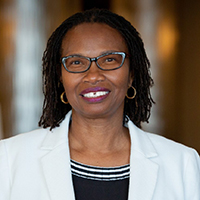 Patricial L. Smith is the president and CEO of The Funders Network. Pat joined The Funders Network in 2018, bringing with her a wealth of expertise in the public, private and nonprofit sectors. Pat took the helm on the cusp of the network’s 20th anniversary, guiding TFN through key milestones during a pivotal moment in our history, including the launch of internal equity training for TFN’s team, an affirmation of our organizational commitment to racial equity and a new strategic framework that will govern TFN’s future direction through 2025. Pat’s vision is to help create a generation of philanthropic leadership that is engaged and emboldened to tackle the defining issues of our era — namely pervasive racial, economic and environmental injustices — and committed to bringing about a just society. Read more about Pat and the rest of the TFN staff on our Team page.
Patricial L. Smith is the president and CEO of The Funders Network. Pat joined The Funders Network in 2018, bringing with her a wealth of expertise in the public, private and nonprofit sectors. Pat took the helm on the cusp of the network’s 20th anniversary, guiding TFN through key milestones during a pivotal moment in our history, including the launch of internal equity training for TFN’s team, an affirmation of our organizational commitment to racial equity and a new strategic framework that will govern TFN’s future direction through 2025. Pat’s vision is to help create a generation of philanthropic leadership that is engaged and emboldened to tackle the defining issues of our era — namely pervasive racial, economic and environmental injustices — and committed to bringing about a just society. Read more about Pat and the rest of the TFN staff on our Team page.
Photo by KlausHausmann is licensed under CC BY-NC-SA
New Grant Opportunities! Partners for Places matching grants support sustainability projects & foster local partnerships
BY TFN STAFF
The Funders Network (TFN), in partnership with the Urban Sustainability Directors Network (USDN), is pleased to announce the opening of the latest round of the Partners for Places grant program.
The deadline to submit proposals is April 13.
Partners for Places is a successful matching grant program that improves communities by supporting equitable sustainability projects that build partnerships between local government leaders, frontline community groups and place-based funders in the U.S. and Canada.
National funders invest in local projects developed through these partnerships to promote a healthy environment, a strong economy and well-being for all residents.
Through these investments, Partners for Places fosters long-term relationships that make our communities more resilient, prosperous and equitable.
These one-to-one matching awards provide partnership investments between $25,000 and $75,000 for one-year projects, or between $75,000 and $150,000 for two-year projects, with a 1:1 match required by one or more local foundations.
Interested in applying? Access the application and resource documents below. (These resources are also available on our Partners for Places home page.)
Round 19 Application and Resources
- Round 19 Application
- Invitation to Apply
- Application and Award Guidance
- Selection Criteria
- Collaborative Roles and Values Table
- Budget Form
- Workplan Template
- Informational Webinar (3 p.m. ET March 10): Register here.
About Partners for Places
Partners for Places is led by TFN in partnership with the USDN. As in previous grant cycles, we are excited to partner with Green Infrastructure Leadership Exchange, a practitioner network that supports communities seeking to grow green stormwater infrastructure (GSI) programs, to support outreach efforts.
To date, Partners for Places has awarded nearly $8.5 million across North America in this successful matching grant program, leading to more than $18 million in investments.
The program is currently supported by six investor foundations: The JPB Foundation, The Kendeda Fund, The Kresge Foundation, New York Community Trust, The Allen H. and Selma W. Berkman Charitable Trust, and the Pisces Foundation.
Read about previous rounds of grants under the “Meet the Grantees” section of the Partners for Places page.
Submitting a Successful Proposal
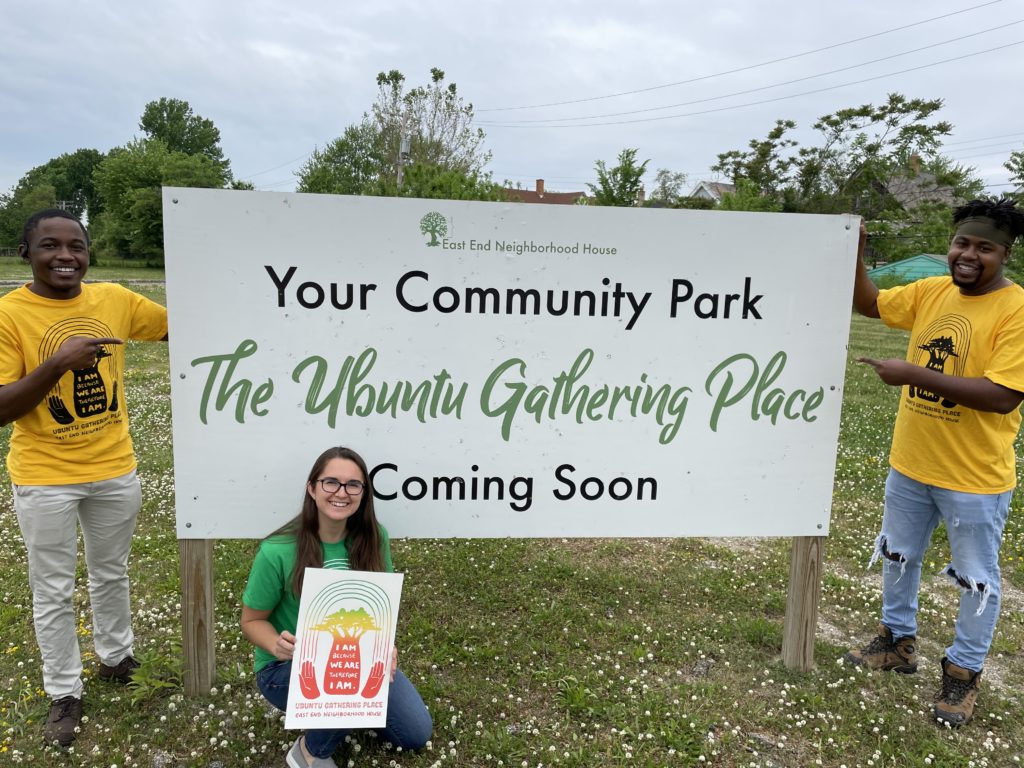
Partners for Places currently administers two grant programs: General Grants, and a Mini Grants program.
General Grants in Round 19 will:
1. Create or improve collaborative partnerships between a local government sustainability and/or water department(s), frontline community group(s), and place-based funder(s).
2. Advance equitable climate action (ECA) and green stormwater infrastructure (GSI) projects that address frontline community priorities.
3. Apply a racial equity approach to both the collaboration and the project planning/implementation.
The application deadline for Round 19 is April 13 (by 11:59 p.m., any time zone).
Please visit the Partners for Places webpage for more information.
Collaboration and partnership are at the heart of the Partners for Places program.
Since 2012, the matching grant program has helped foster dozens of new partnerships between local government sustainability leaders and place-based funders across the U.S. and Canada — relationships that often continue long after the original Partners for Places project has been completed.
In recent years, the grant program has adopted a strategy that leads with racial equity and a sharper focus on how best to advance equitable and sustainable communities.
Starting with the Round 17 Invitation to Apply released in July of 2020, the primary partners have been expanded to include local frontline community groups.
This collaborative partnership model is intended to more deeply embed the values and practice of racial equity into local community decision-making processes.
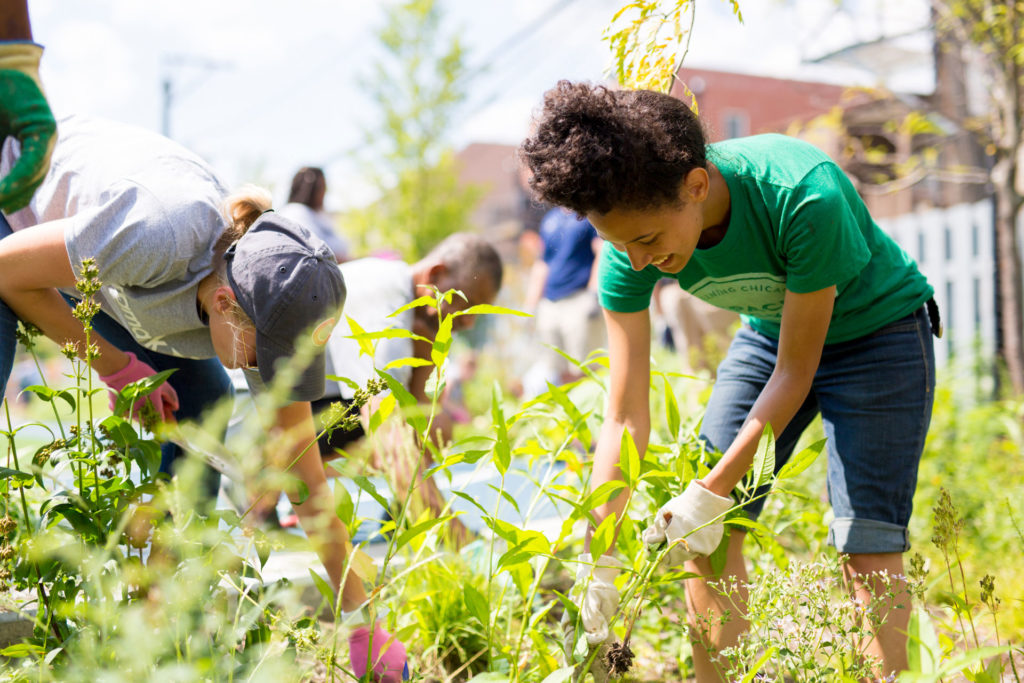
Additional Resources and FAQ’s
→ Register for our Round 19 Informational Webinar designed to help potential applicants prepare proposals, March 10 at 3 p.m.ET. Register here.
→ Read this feature story about Partners for Places in Inside Philanthropy here.
→ If you have questions about the Partners for Places program, please feel free to reach out to Ashley Quintana at ashley@fundersnetwork.org.
→ Where is Partners for Places making an impact? Read previous grant announcements and explore the Partners for Places Grantee Map here.
→ Where can I learn about completed Partners for Places projects?
Visit the Partners for Places Idea Bank to explore what grantees are doing, learning and sharing.
______________________________________________
Featured image at top: The City of Bridgeport, Conn., received a Partners for Places grant to help revitalize the city’s coastline. Photo Credit: The Trust for Public Land
Mobility Fund Grants: Transit, walking & biking advocates receive more than $1 million in new funding
TFN’s Mobility and Access Collaborative is an action-oriented effort that recognizes the urgent need to limit transportation-related greenhouse gas emissions in our escalating climate crisis, while eliminating underlying inequities in the mobility system. The collaborative brings together place-based, regional and national funders to share stories, examine best practices and explore critical issues. Funders engaged in the Mobility and Access Collaborative were instrumental in the launch of the Mobility Fund, which supports local advocacy efforts. Read on for more information about the Mobility Fund's second round of grants. (You can learn more about the Mobility Fund’s first round of grants here.)
By The Mobility Fund
Eight mobility advocacy groups received a total of $391,500 in grants to support their work to advance equitable and sustainable transportation from the second round of the Mobility Fund.
The fund leveraged contributions from national funders with matches from local funders of nearly $761,000 to benefit local and regional non-profits working to make transit, biking and walking convenient, safe and accessible for more people.
“Transit is an essential service for getting people to work, school, medical appointments, and other important destinations in their lives,” said Tenzin Dolkar, Midwest Climate and Energy program officer for the McKnight Foundation.
“There has never been a more important time to invest in transit, biking, and walking—for people and for our planet. That is why the McKnight Foundation supports the Mobility Fund and the advocates working every day to protect and expand sustainable and equitable mobility options,” said Dolkar.
Transit service continues to be impacted by COVID-19 and those impacts fall disproportionately on underserved, underrepresented, and historically marginalized communities. Advocates working to protect, preserve and enhance mobility at the local level are chronically underfunded and the need for support is great. In Round 2, the Mobility Fund received 45 letters of interest, from which the Fund invited 17 proposals with a total request of $891,500.
“The Mobility Fund is a key philanthropic investment opportunity at the intersection of transportation, equity and climate,” said Lina Fedirko, program manager on the Transportation Team at the ClimateWorks Foundation, another investor in the fund. “ClimateWorks is excited to join partners for the second year, in supporting the local advocacy necessary to push for emissions free transportation that centers and serves people."
“These grants are about supporting advocates fighting for a just, clean and healthy transportation future. It starts with these people and hundreds of others that deserve more support,” said Darryl Young, director of the Sustainable Cities Program at The Summit Foundation, which also supported the fund.
Grants provide general operations support and support for collaboration between community groups that advocate for mobility.
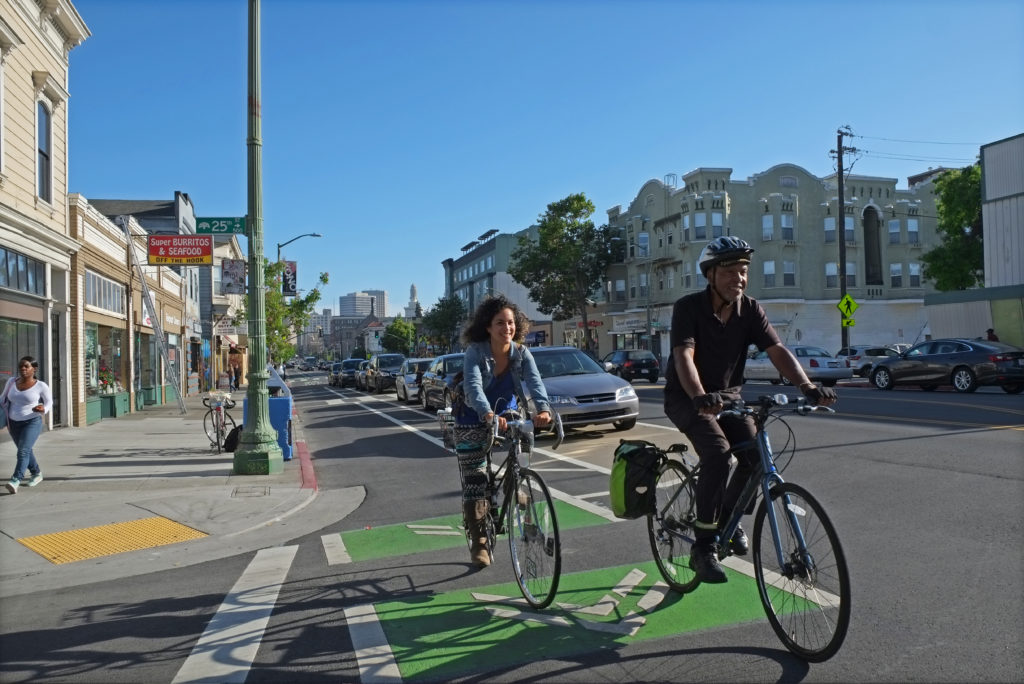
Grantees from the second round of the Mobility Fund are:
Active Transportation Alliance, Chicago ($50,000) Building Power for Equitable Transportation Investment: A project to support the Transportation Equity Network Advocacy Committee efforts to mobilize its membership around an advocacy strategy, to ensure a transparent and accountable decision-making process that prioritizes racial equity for Chicago’s 2022 capital spending and beyond.
Atlanta Bicycle Coalition ($72,500) Expanding More Equitable Transit in Atlanta: A project to create deeper collaboration between the Atlanta Bicycle Coalition, MARTA Army, and the Partnership for Southern Equity to inform, educate, and empower community residents to advocate for more equitable, accessible transit in Atlanta.
Bike East Bay ($50,000) Community Organizing for Equitable Slow Streets in Oakland: A project to partner with the City of Oakland and local community groups to expand and permanently adopt Oakland’s post-pandemic Slow Street network.
Coalition for Smarter Growth, Fairfax County, Va. ($50,000) Safer Streets for Bailey’s Crossroads: A project to involve community members in advocating and winning design solutions to make their streets safer, and improve access to transit and services —i creating a model for local engagement and successful advocacy that can be applied in other priority communities.
Futurewise ($45,000) Advancing Equitable Transit-Oriented Communities on Seattle’s Eastside: A project to advocate in partnership with local BIPOC communities for updates to local neighborhood plans, accessible housing, and transportation policies that will create equitable, transit-oriented communities in the areas served by the upcoming Sound Transit East Link light rail expansion.
Health by Design ($24,000) Building the Indiana Mobility Management Network: A project to advance and accelerate efforts underway to establish a Mobility Management Network (MMN) for the state of Indiana in 2022.
Move LA ($50,000) Centering Equity for LA Transit Riders: A project to prioritize the restoration and expansion of LA Metro bus service, support funding for a fareless transit system pilot, and advocate for capital projects that prioritize bus speed and active transit that benefit low-income and communities of color.
Seattle Neighborhood Greenways ($50,000) BIPOC-Led Solutions for Community Safety: A project to support a workgroup is dedicated to reviewing and revising laws governing the use of our public streets to better meet the needs of the BIPOC community who have historically been excluded from the full and free use of this shared public space.
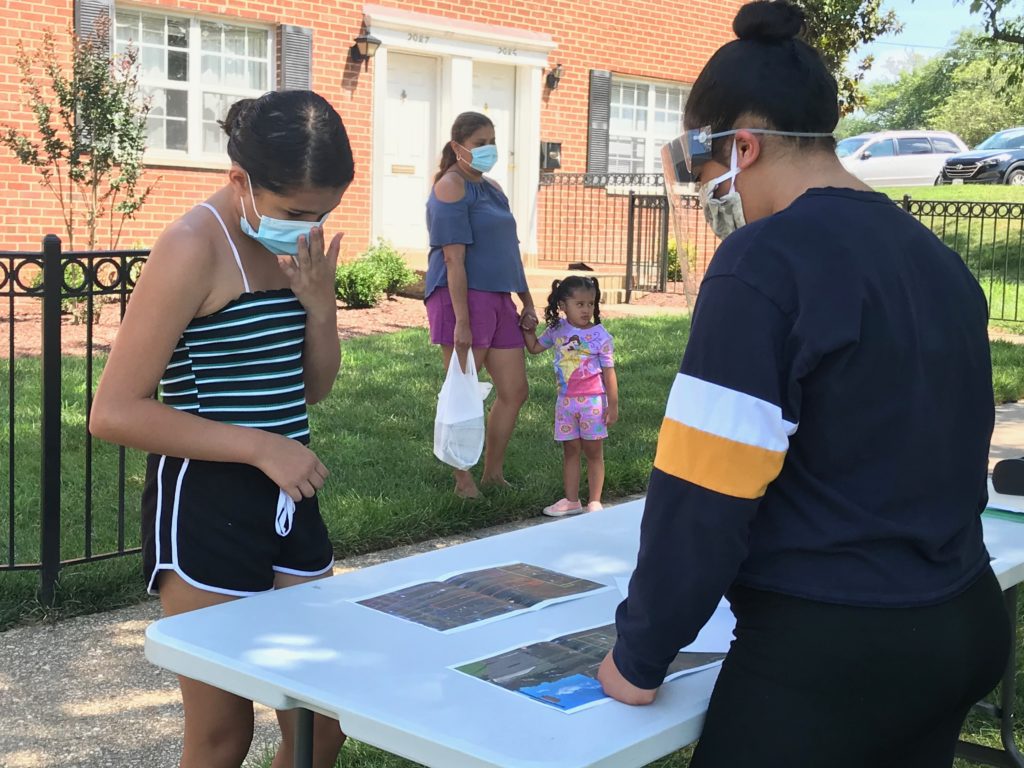
About the Mobility Fund
The Mobility Fund supports community-based advocacy around sustainable and equitable mobility through competitive grantmaking. To date, the fund has granted $778,000 to 17 mobility advocate groups working to advance equitable mobility access and use in communities since its launch in 2020. Thus far, grant recipients have reported $1,807,943 in additional funds leveraged, including local matching funds, producing a 232.4% return on the Mobility Fund’s investment. This fund is housed at Global Philanthropy Partnership. It is supported by the pooled funds of trailblazing regional and national philanthropic foundations who are comfortable working at the
nexus of equity and climate to transform broken systems. Fund processes are guided by an Advisory Team made up of local mobility advocates and national funders. For more information about the Mobility Fund, contact Martha Roskowski at martha@furtherstrategies.com.

